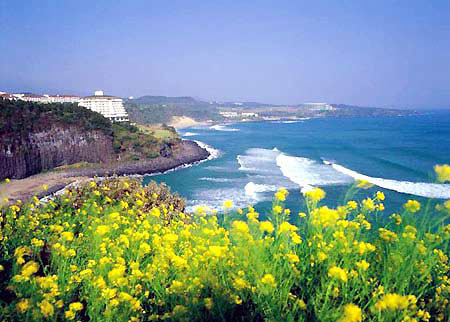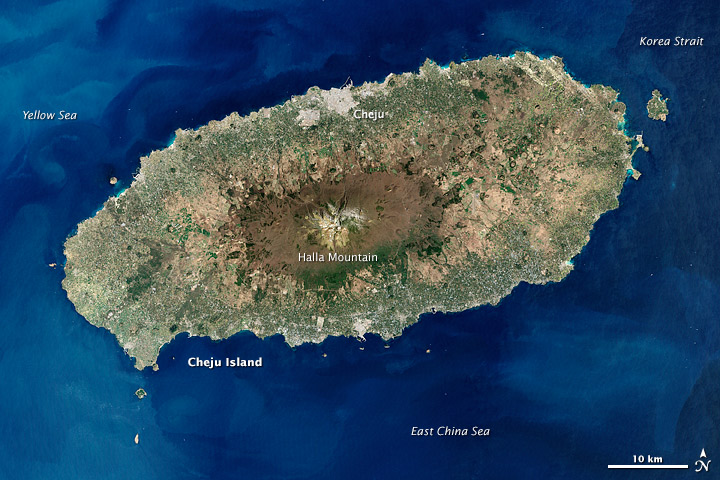A small resort island in Korea is considered one of the world’s most important conservation zones, making it a perfect host for a star-studded international meeting of conservationists.
A biosphere reserve, a World Natural Heritage site, and a “global geopark” – no other place on earth holds three UNESCO titles, but where is it? Surprisingly, it’s not the Amazon jungle or the Great Barrier Reef, but the little-known island of Jeju, found along the tropical southern coast of South Korea.
With stunning volcanic scenery, lush jungle and plenty of gorgeous waterfalls, Jeju recently made headlines when it was voted one of the “New 7 Wonders of the World” by a Swiss foundation, and it also made CNN’s list of the top 50 natural wonders.
The small isle was flooded this week with more than 10,000 delegates from every corner of the world, converging on Jeju for the prestigious 2012 World Conservation Congress. Representatives from 170 countries and all manner of agencies – including the United Nations, governments, and NGOs – met for a 10-day conference to forge a new path for global environmental planning. Following up on the solutions proposed earlier this year at the Rio 2012 Earth Summit, the emphasis was on sustainable development and a variety of “green” initiatives.
The conference also has the rare distinction of having inaugurated an entirely new word to sum up these concepts – “glocalization”. This attention on the local aspect of sustainability will come as welcome news to many small communities, who have long been in the shadow of the major industrial powers, and can now play a more important role in implementing environmental solutions.
Small island nations in particular have come into the spotlight, especially after the recent Pacific Islands Summit, where the presence of US Secretary of State Hillary Clinton demonstrated strong support for more funding for green development.
Professor Geoffrey Lipman, president of the International Council of Tourism Partners, said that eco-friendly destinations were increasing in prominence as travel options, and that the industry itself could be a driving force in supporting sustainability in local communities.
In fact, the island of Jeju can be considered a showcase example of this philosophy. A motion was passed at the conference to increase tourist awareness of and protect Jeju’s local women seashell divers, known as “mermaids”. In 2012’s new era of environmentalism, it finally seems that no community, regardless of how small, will be left behind.
Read more about the World Conservation Congress: Korea Times




